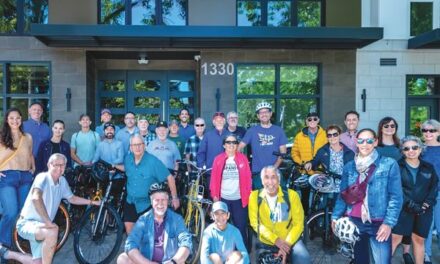Dan Dunmoyer, president and CEO of the California Building Industry Association, likes to cite numbers when asked about the state’s housing crisis.
“In 1963, we built 331,000 homes in California and the population was half what it is now,” he says. “Last year, we built about 120,000 and we have a population at least twice that size.”
We can do the math. Prices are driven largely by supply and demand. California is woefully short on supply.
To dig deeper and get the homebuilder perspective, I reached out to Dunmoyer, who I enjoyed working with when I was Gov. Arnold Schwarzenegger’s speechwriter. Dunmoyer was the governor’s cabinet secretary, juggling multiple complex issues.
But first, Dunmoyer politely corrected me. We don’t have a housing crisis. We have a housing policy crisis.

“We, the great people of California in our infinite wisdom for the last 40 years—and not because we don’t like housing—have made policy choices that when stacked upon each other have created this conundrum that could be fixed if we confront the policy issues,” he says.
Excessive fees on builders. Repetitive and expensive environmental reviews that can go on for years. Decades of scattered no-growth politics. The requirement to pay prevailing wage for a project with a public subsidy. Single-family zoning laws that limit housing options.
These are just some of the policy issues that helped create the supply-and-demand chasm.
“But it’s also fixable,” Dunmoyer says. “If you get rid of the fees and all the delays, you’ve fixed the problem. That’s the policy side. These are two issues that every other state, whether it’s blue, red, navy or bright red, they have not duplicated the mistakes we’ve made.”
What policies would he like to see? He would keep the California Environmental Quality Act signed in 1970 by Gov. Ronald Regan. But Dunmoyer would limit the review for housing projects to a one-time analysis.
In California, a project gets scrutinized for all its environmental impacts—water, air quality, traffic, wildlife and more. This comes after city or county approval, when just about anyone can file a CEQA appeal and delay development.
Reasonable people agree we need thoughtful environmental analysis. But the stories of abuse and delay are legendary, including the example of a San Francisco Boy Scout, age 16, who tied up a condominium project for 18 months.
It’s a case I learned about in the excellent 2020 book “Golden Gates: The Housing Crisis and a Reckoning for the American Dream,” by New York Times economics reporter Conor Dougherty.
Dunmoyer likes how Los Angeles Mayor Karen Bass declared a housing and homelessness state of emergency. With the stroke of a pen, she cut through much of the red tape that makes housing, particularly affordable housing, time consuming and difficult.
“She stopped excessive fees. She stopped permitting delays. She stopped over-zealous CEQA activity and she stopped the high cost of labor,” he says.
The state Legislature passed many housing bills in recent years. Dunmoyer believes most have not had much impact. Exceptions are legislation allowing accessory dwelling units in single-family neighborhoods.
He’s particularly pleased with Senate Bill 330 from Sen. Nancy Skinner, a progressive Berkeley Democrat. The bill cut the number of hearings and other obstacles that delay projects.
“You have to have hearings,” he says. “She didn’t do way with hearings, but you can’t have 40 or 50 hearings on one project.”
High interest rates hurt homebuilders and buyers, but Dunmoyer is encouraged by shifts in public opinion.
“More and more people recognize that the housing shortage is changing California in a negative way,” he says. “What’s also driving people is the fact that their kids can’t afford to stay here. So, they’re thinking, maybe it’s OK to have some duplexes in my neighborhood and it’s not the end of Western civilization.”
Gary Delsohn can be reached at gdelsohn@gmail.com. Follow us on Facebook and Instagram: @insidesacramento.















